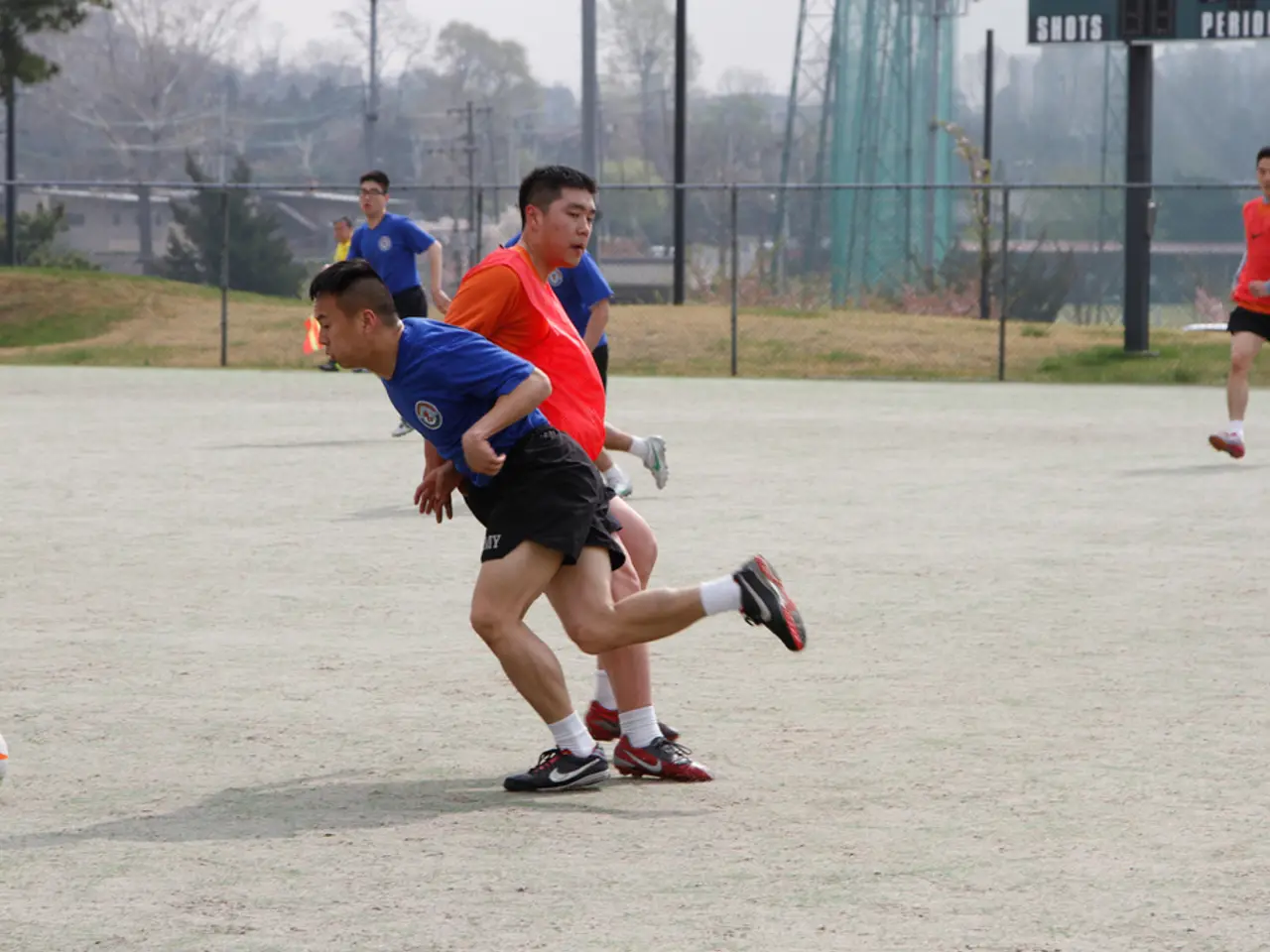Soccer Pros' Mental Game Analysis: Examining Their Decision-Making Abilities in the Heat of Matches
Professional soccer players demonstrate exceptional cognitive abilities, including anticipation, spatial awareness, working memory, executive control, and rapid decision-making, according to a groundbreaking study led by Leonardo Bonetti of Aarhus University and the University of Oxford. The research, published in the Proceedings of the National Academy of Sciences USA, involved over 200 professional soccer players from Brazil and Sweden, including a small percentage of female athletes.
The study, which consisted of experts from various universities, aimed to uncover the unique cognitive abilities that set these athletes apart from the rest. The researchers found that professional soccer players excel in adapting to fast-changing situations and demonstrate superior cognitive flexibility.
One key cognitive skill involved is anticipation and pattern recognition. Skilled players excel at assessing complex visual and contextual cues to predict opponents’ actions well before ball contact. This ability allows them to recognize play patterns rapidly without overwhelming their short-term memory.
Working memory and executive functions are also critical for professional players. Managing limited working memory capacity under pressure, these athletes use cognitive flexibility to switch attention quickly, especially during transitions. This requires inhibitory control and executive functions to prioritize relevant cues appropriately and make fast decisions in real time.
Action selection under uncertainty is another crucial skill. Players balance speed and accuracy when choosing motor responses, often blending anticipatory strategies with reactive adjustments based on late but reliable cues. Executive control supports decisive action despite uncertainty, critical in high-pressure match conditions.
Feedback-based learning also plays a significant role in the continuous improvement of these players' perceptual and motor skills, leading to improved anticipation and adaptive decision-making over time.
Training spatial intelligence enhances the ability to interpret spatial information and update decisions based on movement of others. Deliberate cognitive load training in football can improve attention, prediction, and executive control, contributing to better in-game adaptability.
However, the study also highlighted risks linked to cognitive function in soccer, such as cognitive decline related to repetitive head impacts. This can impair reaction time and motor integration, especially in defenders who experience more impacts.
Intervention studies suggest that cognitive-motor training programs can enhance these cognitive-motor skills over time, contributing positively to overall soccer performance. Such measures, according to Predrag Petrovic, a clinical neuroscience expert and co-senior author of the study, could revolutionize player recruitment, team strategies, and individual coaching based on cognitive profiles.
Jaap Oosterlaan, a professor of pediatric neurosciences, questioned the direct relationship between cognitive abilities and athletic performance. However, Petrovic expressed optimism about the future integration of cognitive assessments in professional soccer. The pursuit of greatness in soccer, he notes, demands not only intelligence and strategy but also unwavering motivation and determination.
The study utilized artificial intelligence to identify patterns in cognitive and personality traits that distinguished elite athletes from nonathletes. The research team compared these elite players to a control group of Brazilian nonathletes with similar educational backgrounds. Players with higher scores on the design fluency test, used in the study, displayed enhanced strategic thinking and analytical skills.
The study highlights the multifaceted nature of athletic performance and the complex interplay between mind and body in achieving sporting excellence. The delicate balance of mental acuity and physical prowess required for a player's success on the soccer field is a fascinating area of ongoing research.
- Not only do professional soccer players excel in sports like football and soccer, but they also demonstrate exceptional abilities in education-and-self-development domains, such as anticipation, spatial awareness, working memory, executive control, and learning.
- The study, which focused on cognitive skills essential for soccer, also emphasized the importance of education, especially in the development of feedback-based learning and spatial intelligence.
- Just as training improves physical abilities in sports, cognitive-motor training programs can enhance cognitive-motor skills like attention, prediction, and executive control, contributing to better in-game adaptability and overall soccer performance.
- As the study suggests, the pursuit of excellence in sports like soccer demands not only physical prowess but also mental acuity and dedication to learning, indicating that science and education play a crucial role in shaping the future of sports.




